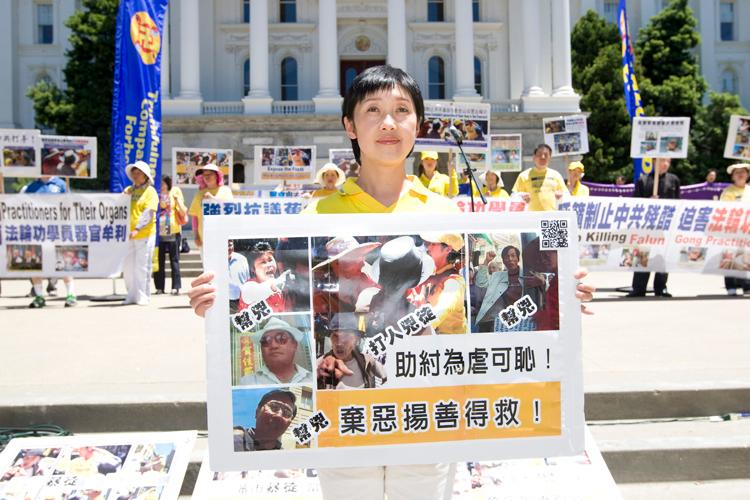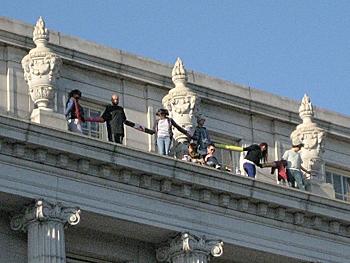Stephen Schultz, an American citizen who engaged in business opportunity fraud, pleaded guilty in Federal District Court in Miami on twelve counts of an indictment against him Friday, the U.S. Department of Justice and U.S. Postal Inspection Service announced in a press release.
He was charged on one count of conspiracy to commit mail and wire fraud, eight counts of mail fraud, and three counts of wire fraud.
Operating out of companies in Costa Rica but nominally registered with bank accounts and office space in the United States, Schultz’s role in the conspiracy resulted in between $2.5 million to $7 million in losses to investors and harmed over 250 victims.
“Business opportunity fraud targets Americans who are working hard to start a business and earn an honest living. While these fraud schemes may sometimes operate beyond our borders, they aren’t beyond the reach of United States law,” said Tony West, assistant attorney general for the Civil Division of the Department of Justice. “The Justice Department is committed to prosecuting those who steal through false promises of financial success.”
Along with co-conspirator Jeffrey Pearson, Schultz fraudulently sold beverage and greeting card business opportunities, which included the service of establishing, maintaining, and operating such businesses.
A Federal Grand jury in Miami indicted Schultz and Pearson in November 2008 and both were subsequently arrested in Costa Rica and extradited to the United States in December 2008.
Schultz and his cohorts substantiated his business opportunity sales to buyers by making each of the companies appear as if they had full-blown operations inside the United States. USA Beverages sold business opportunities to own and operate coffee beverage display racks starting in May 2005.
After USA Beverages, Schultz worked for Twin Peaks then Cards-R-Us, which sold business opportunities to own and operate greeting card sale display racks.
According to a December 2008 press release from the Department of Justice, Schultz and Pearson used Voice Over Internet Protocol (VoIP) phone service to operate out of Costa Rica and used rented offices in the U.S. to make fraudulent mailings.
They made a number of false statements to potential buyers of the business opportunities, such as the companies were established years earlier and had a significant number of distributors across the country. They also told the potential purchasers that they would earn large profits and referred them to “references” who told them conjured up success stories. In addition, they claimed that the companies were connected with locators local to the purchaser’s area and had the incentive to find purchasers good locations for their display carts.
Each of the business opportunities cost thousands of dollars and most purchasers paid at least $10,000, according to the 2008 release, immediately after the initial indictment. Each of the companies Schultz and others operated using several aliases lasted for several months and new ones opened one after another.
Schultz faces a maximum sentence of 10 years in prison on the conspiracy count, and 25 years on each of the mail and wire fraud counts. He also faces a possible fine and mandatory restitution.
Operating out of companies in Costa Rica but nominally registered with bank accounts and office space in the United States, Schultz’s role in the conspiracy resulted in between $2.5 million to $7 million in losses to investors and harmed over 250 victims.
“Business opportunity fraud targets Americans who are working hard to start a business and earn an honest living. While these fraud schemes may sometimes operate beyond our borders, they aren’t beyond the reach of United States law,” said Tony West, assistant attorney general for the Civil Division of the Department of Justice. “The Justice Department is committed to prosecuting those who steal through false promises of financial success.”
Along with co-conspirator Jeffrey Pearson, Schultz fraudulently sold beverage and greeting card business opportunities, which included the service of establishing, maintaining, and operating such businesses.
A Federal Grand jury in Miami indicted Schultz and Pearson in November 2008 and both were subsequently arrested in Costa Rica and extradited to the United States in December 2008.
Schultz and his cohorts substantiated his business opportunity sales to buyers by making each of the companies appear as if they had fullblown operations inside the United States. USA Beverages sold business opportunities to own and operate coffee beverage display racks starting in May 2005.
After USA Beverages, Schultz worked for Twin Peaks then Cards-R-Us, which sold business opportunities to own and operate greeting card sale display racks.
According to a December 2008 press release from the Department of Justice, Schultz and Pearson used Voice Over Internet Protocol (VoIP) phone service to operate out of Costa Rica and used rented offices in the U.S. to make fraudulent mailings.
They made a number of false statements to potential buyers of the business opportunities, such as the companies were established years earlier and had a significant number of distributors across the country. They also told the potential purchasers that they would earn large profits and referred them to “references” who told them conjured up success stories. In addition, they claimed that the companies were connected with locators local to the purchaser’s area and had the incentive to find purchasers good locations for their display carts.
Each of the business opportunities cost thousands of dollars and most purchasers paid at least $10,000, according to the 2008 release, immediately after the initial indictment. Each of the companies Schultz and others operated using several aliases lasted for several months and new ones opened one after another.
Schultz faces a maximum sentence of 10 years in prison on the conspiracy count, and 25 years on each of the mail and wire fraud counts. He also faces a possible fine and mandatory restitution.
He was charged on one count of conspiracy to commit mail and wire fraud, eight counts of mail fraud, and three counts of wire fraud.
Operating out of companies in Costa Rica but nominally registered with bank accounts and office space in the United States, Schultz’s role in the conspiracy resulted in between $2.5 million to $7 million in losses to investors and harmed over 250 victims.
“Business opportunity fraud targets Americans who are working hard to start a business and earn an honest living. While these fraud schemes may sometimes operate beyond our borders, they aren’t beyond the reach of United States law,” said Tony West, assistant attorney general for the Civil Division of the Department of Justice. “The Justice Department is committed to prosecuting those who steal through false promises of financial success.”
Along with co-conspirator Jeffrey Pearson, Schultz fraudulently sold beverage and greeting card business opportunities, which included the service of establishing, maintaining, and operating such businesses.
A Federal Grand jury in Miami indicted Schultz and Pearson in November 2008 and both were subsequently arrested in Costa Rica and extradited to the United States in December 2008.
Schultz and his cohorts substantiated his business opportunity sales to buyers by making each of the companies appear as if they had full-blown operations inside the United States. USA Beverages sold business opportunities to own and operate coffee beverage display racks starting in May 2005.
After USA Beverages, Schultz worked for Twin Peaks then Cards-R-Us, which sold business opportunities to own and operate greeting card sale display racks.
According to a December 2008 press release from the Department of Justice, Schultz and Pearson used Voice Over Internet Protocol (VoIP) phone service to operate out of Costa Rica and used rented offices in the U.S. to make fraudulent mailings.
They made a number of false statements to potential buyers of the business opportunities, such as the companies were established years earlier and had a significant number of distributors across the country. They also told the potential purchasers that they would earn large profits and referred them to “references” who told them conjured up success stories. In addition, they claimed that the companies were connected with locators local to the purchaser’s area and had the incentive to find purchasers good locations for their display carts.
Each of the business opportunities cost thousands of dollars and most purchasers paid at least $10,000, according to the 2008 release, immediately after the initial indictment. Each of the companies Schultz and others operated using several aliases lasted for several months and new ones opened one after another.
Schultz faces a maximum sentence of 10 years in prison on the conspiracy count, and 25 years on each of the mail and wire fraud counts. He also faces a possible fine and mandatory restitution.
Operating out of companies in Costa Rica but nominally registered with bank accounts and office space in the United States, Schultz’s role in the conspiracy resulted in between $2.5 million to $7 million in losses to investors and harmed over 250 victims.
“Business opportunity fraud targets Americans who are working hard to start a business and earn an honest living. While these fraud schemes may sometimes operate beyond our borders, they aren’t beyond the reach of United States law,” said Tony West, assistant attorney general for the Civil Division of the Department of Justice. “The Justice Department is committed to prosecuting those who steal through false promises of financial success.”
Along with co-conspirator Jeffrey Pearson, Schultz fraudulently sold beverage and greeting card business opportunities, which included the service of establishing, maintaining, and operating such businesses.
A Federal Grand jury in Miami indicted Schultz and Pearson in November 2008 and both were subsequently arrested in Costa Rica and extradited to the United States in December 2008.
Schultz and his cohorts substantiated his business opportunity sales to buyers by making each of the companies appear as if they had fullblown operations inside the United States. USA Beverages sold business opportunities to own and operate coffee beverage display racks starting in May 2005.
After USA Beverages, Schultz worked for Twin Peaks then Cards-R-Us, which sold business opportunities to own and operate greeting card sale display racks.
According to a December 2008 press release from the Department of Justice, Schultz and Pearson used Voice Over Internet Protocol (VoIP) phone service to operate out of Costa Rica and used rented offices in the U.S. to make fraudulent mailings.
They made a number of false statements to potential buyers of the business opportunities, such as the companies were established years earlier and had a significant number of distributors across the country. They also told the potential purchasers that they would earn large profits and referred them to “references” who told them conjured up success stories. In addition, they claimed that the companies were connected with locators local to the purchaser’s area and had the incentive to find purchasers good locations for their display carts.
Each of the business opportunities cost thousands of dollars and most purchasers paid at least $10,000, according to the 2008 release, immediately after the initial indictment. Each of the companies Schultz and others operated using several aliases lasted for several months and new ones opened one after another.
Schultz faces a maximum sentence of 10 years in prison on the conspiracy count, and 25 years on each of the mail and wire fraud counts. He also faces a possible fine and mandatory restitution.



